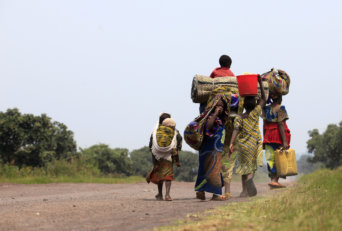- About
- Topics
- Picks
- Audio
- Story
- In-Depth
- Opinion
- News
- Donate
-
Signup for our newsletterOur Editors' Best Picks.Send
Read, Debate: Engage.
| topic: | Human Rights |
|---|---|
| located: | Somalia |
| editor: | Bob Koigi |
In a historic development, Somalia has put pen to paper, The African Union Convention for the Protection and Assistance of Internally Displaced People (IDPs) in Africa, commonly referred to as the Kampala Convention. With the ratification, the government has made bold and landmark commitments to take charge of the IDPs situation that has, in the recent past, created a humanitarian crisis of unimaginable proportions as the number of those fleeing conflicts and famine hit unprecedented highs.
The Horn of Africa nation has the world’s fourth-largest population of IDPs currently projected at more than 2.6 million. And as the crises exacerbate so do the numbers grow. This year for example, aid agencies estimate that more than 665,000 people have fled their homes as conflict, drought and floods displace them.
Out of the 10 million people in Africa that were displaced by various factors in 2018, Somalia accounted for 11 per cent pointing to the dire and urgent need to harmonise assistance and coordinate interventions to alleviate the suffering of this vulnerable group.
The Kampala Convention, the world’s first legally binding instrument championing the protection and assistance of IDPs, has been ratified by only 30 African states despite the continent being a ticking time bomb for conflicts and facing some of the most severe climate change aftershocks. Somalia is offering vital lessons to the rest of the continent on the government’s cardinal role in taking care of especially its vulnerable population.
While the primary goal should be averting any crisis and attendant causes, contingency measures that ameliorate the situation of the suffering should and must be every government’s priority. Anchoring that in law shows true commitment. Somalia just demonstrated that to the world.
